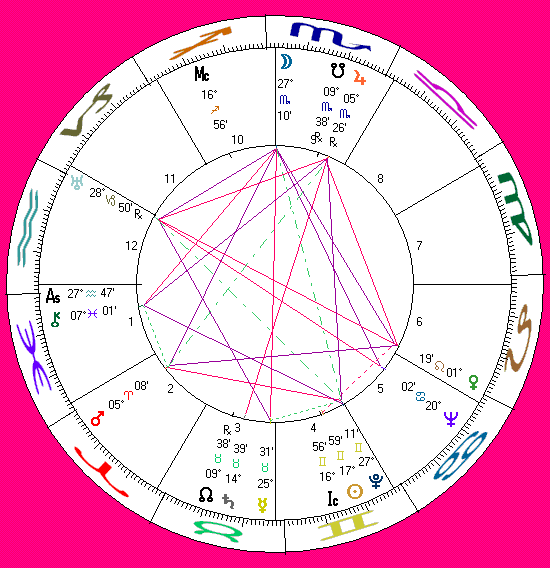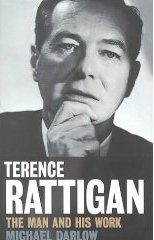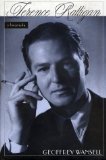WIKIPEDIA BIOGRAPHY: Sir Terence Mervyn Rattigan (June 10, 1911 – November 30, 1977) was one of England's most popular 20th century dramatists. He was born in London of Irish extraction[citation needed], educated at Harrow and Trinity College, Oxford, and his plays are generally situated within an upper middle class background. Success as a playwright came early, with the comedy French Without Tears in 1936, set in a crammer. Rattigan's determination to write a more serious play produced After the Dance (1939), a satirical social drama about the "bright young things" and their failure to politically engage. The outbreak of the Second World War scuppered any chances of a long run. After the war Rattigan alternated between comedies and dramas, establishing himself as a major playwright: the most famous of which were The Winslow Boy (1946), The Browning Version (1948), The Deep Blue Sea (1952), and Separate Tables (1954). Rattigan believed in understated emotions, and craftsmanship, which after the overnight success of John Osborne's Look Back in Anger in 1956 was deemed old fashioned. Rattigan responded to his critical disfavour with some bitterness. Some churlish interviews served only to confirm the view that he had no sympathy or understanding of the modern world. His plays Ross, Man and Boy, In Praise of Love, and Cause Célèbre, however show no sign of any decline in his talent. He was a gay, with numerous lovers but no long-term partners[citation needed]. It has been claimed that his work is essentially autobiographical, containing coded references to his sexuality, which he kept secret from all but his closest friends. There is some truth in this, but it risks being crudely reductive, for example the repeated claim that Rattigan originally wrote The Deep Blue Sea as a play about male lovers, turning into a heterosexual play at the last minute, is unfounded. His female characters are written as females and are in no sense 'men in drag'. He was diagnosed as having leukaemia in 1962 and recovered two years later, but fell ill again in 1968. He disliked the so-called Swinging London of the 1960s and moved abroad, living in Bermuda, where he lived off the proceeds from lucrative screenplays including The V.I.P.s and The Yellow Rolls-Royce. For a time he was the highest-paid screenwriter in the world. He was knighted in the early seventies and moved back to Britain, where he experienced a minor revival in his reputation before his death from bone cancer in 1977 at the age of 66. Fifteen years after his death, largely through a revival of The Deep Blue Sea, at the Almeida Theatre, London, directed by Karel Reisz, Rattigan has increasingly been seen as one of the century's finest playwrights, an expert choreographer of emotion, and an anatomist of human emotional pain. A string of successful revivals followed, including Man and Boy at the Duchess Theatre, London, in 2005, with David Suchet as Gregor Antonescu, and In Praise of Love at the Chichester Festival Theatre and Separate Tables at the Royal Exchange, Manchester, in 2006. His play on the last days of Nelson, A Bequest to the Nation was revived on Radio 4 for Trafalgar 200, starring Janet McTeer as Lady Hamilton, Kenneth Branagh as Nelson, and Amanda Root as Lady Nelson. ....[read more at Wikipedia]
all rights reserved in all media
|




